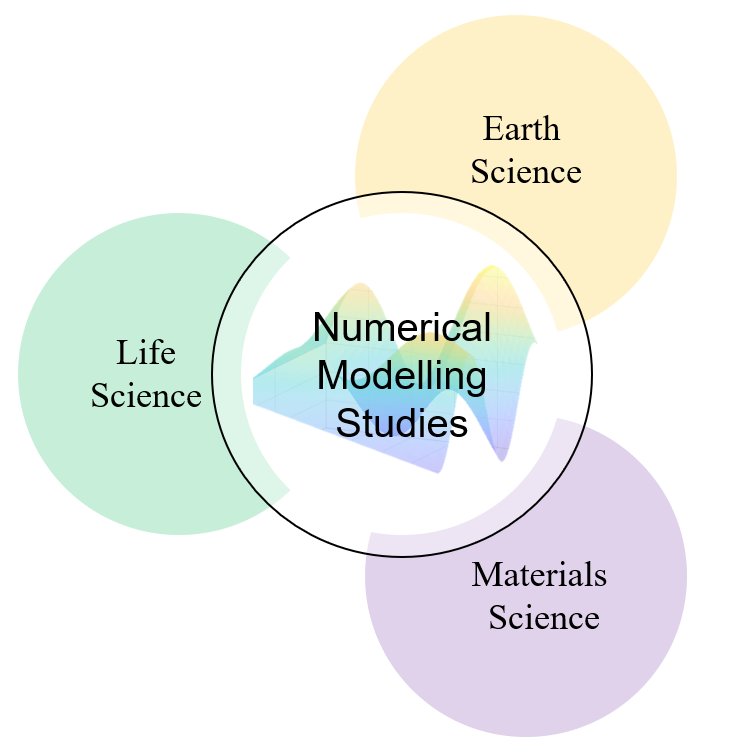Numerical modelling methods provide solutions for complex mathematical models and are utilized in an array of projects within the MPGC, crosscutting the fields of Material science, Earth Science, and Life Science. Their quantitative and predictive nature have made them indispensable tools in our research and applications span from the molecular to the global scale, from single molecules over nanoparticles to weather phenomena and tectonic motions. While the applications differ widely, the topic offers many common and complementary concepts and techniques. These experiences are concentrated and harnessed in the dedicated focus group “Interdisciplinary Numerical Model Studies”, involving collaborations from JGU, TU Kaiserslautern, and the MPIs for Chemistry and Polymer Research.
The focus group covers a variety of mathematical and numerical techniques: Kinetics, Thermodynamics and Transport Modelling, Molecular Dynamics Simulations, Machine Learning, Uncertainty Quantification, and Ab-Initio Quantum Mechanics. Common goal and denominator of these techniques is an accurate mathematical description of problems across Chemistry, Biology, and Physics.
Among the specific, interdisciplinary projects in the focus group are the health effects of atmospheric nanoparticles, molecular properties and quantum chemistry, atmospheric transport and weather modelling, geological process modelling, and the properties of polymers.
Common themes in these projects include fundamental properties of complex materials and mixtures, interfacial effects and catalysis, and processes in the human body. The focus group provides a forum for exchange on the complementary use of deterministic models, machine learning techniques, and uncertainty quantification, addressing model accuracy, complexity, and uncertainty.

